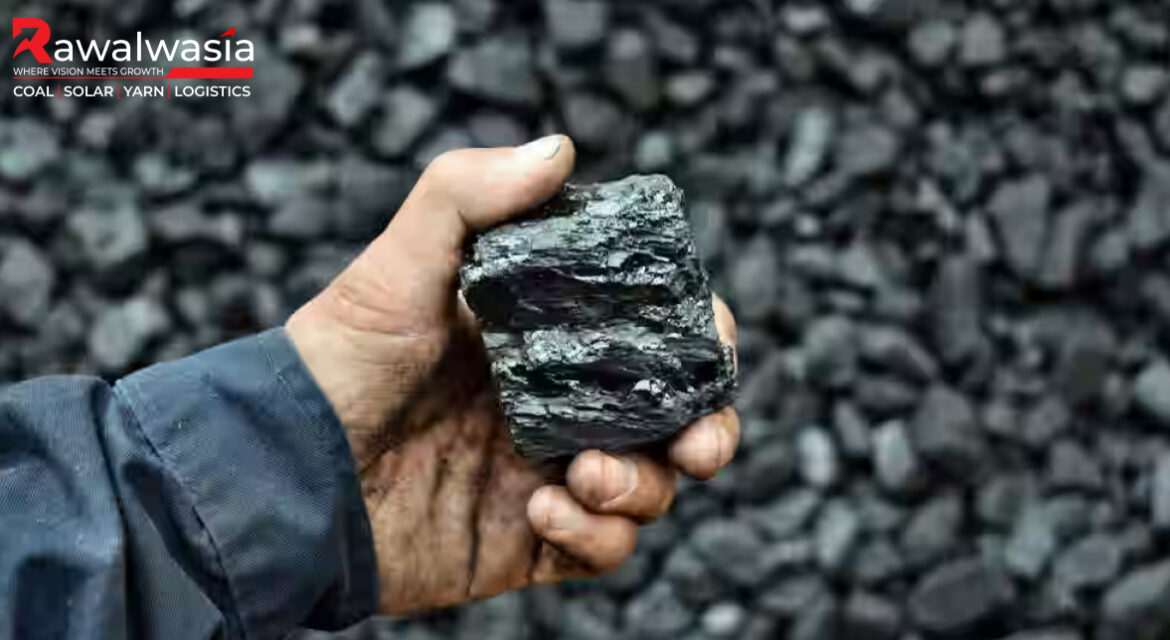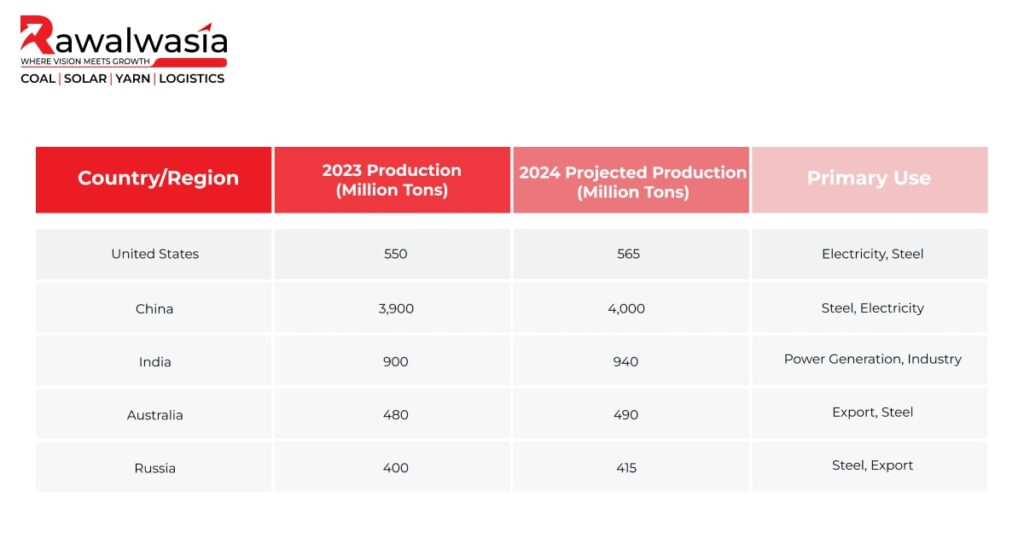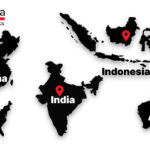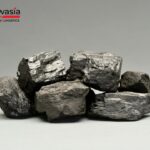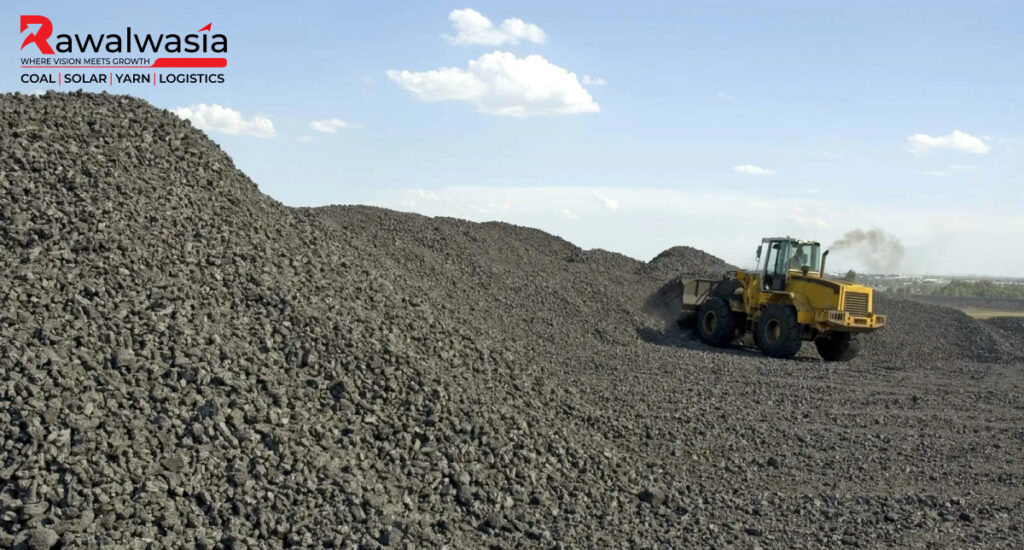
Bituminous coal, a key energy source for industries worldwide, is renowned for its high carbon content and versatility across various applications. As one of the most abundant forms of coal, it plays a central role in electricity generation, steel production, and industrial processes. Characterized by a distinct black colour and dense structure, bituminous coal has a high calorific value, making it an efficient fuel for numerous energy-intensive industries. This blog explores the unique attributes, current trends, and innovations surrounding bituminous coal as of 2024, highlighting the Rawalwasia Group’s role in providing premium coal solutions to meet the diverse needs of global industries.
Latest Developments and Innovations in Bituminous Coal
In recent years, bituminous coal has maintained its importance in global energy markets thanks to innovations that enhance its efficiency and expand its applications. Bituminous coal contains approximately 45–86% carbon and has a heating value between 24 and 35 million British thermal units (BTUs) per ton, making it one of the most energy-dense types of coal. As of 2024, technological advances in extraction, processing, and combustion efficiency have significantly improved the value proposition of bituminous coal.
One significant trend is the development of advanced combustion technologies. These technologies improve the efficiency of coal usage in power generation, enabling industries to extract more energy from each ton of bituminous coal. With these advancements, industries are maximizing the potential of bituminous coal while adhering to global standards for energy efficiency. Additionally, enhancements in coal gasification and liquefaction allow bituminous coal to be converted into synthetic natural gas or liquid fuels. These processes increase the versatility of bituminous coal, making it a viable option for industries seeking alternative energy solutions.
The Role of Bituminous Coal in Steel Production
Bituminous coal is a critical raw material in the steel industry, where it is processed into coke, a material essential for iron smelting. In this process, bituminous coal is heated in a low-oxygen environment to remove impurities, resulting in a high-carbon product known as coke. Coke then acts as a fuel and a reducing agent in blast furnaces, facilitating iron extraction from ore. This reliance on bituminous coal-derived coke in steel production emphasizes the importance of this coal type in infrastructure development and manufacturing.
As steel production rises globally, the demand for bituminous coal has grown in parallel. According to the World Steel Association, global steel demand is projected to increase by 2% annually through 2024, driven by infrastructure projects and industrial growth in emerging markets. This growth translates directly into increased demand for high-quality bituminous coal, solidifying its position as an indispensable resource for modern industry.
Key Services Offered by Rawalwasia Group for Bituminous Coal Solutions
The Rawalwasia Group is dedicated to providing top-tier bituminous coal solutions catering to diverse industries’ unique requirements. Known for its commitment to quality and client satisfaction, Rawalwasia Group offers services that ensure the efficient procurement and supply of bituminous coal. Here are the core services provided by the Rawalwasia Group:
- Global Sourcing and Procurement: The Rawalwasia Group sources premium-grade bituminous coal from reliable international suppliers, ensuring that clients receive high-quality coal suited to their industry requirements.
- Customizable Coal Blending: Recognizing its clients’ diverse needs, Rawalwasia offers coal blending services to create specific grades of bituminous coal tailored to optimize performance in various industrial applications.
- Logistics and Supply Chain Management: The group has an extensive logistics network that enables timely and efficient delivery of bituminous coal, ensuring that clients experience uninterrupted supply chains and minimize operational downtimes.
- Technical Support and Consultation: Rawalwasia provides expert consultation services, guiding clients on the optimal utilization of bituminous coal to maximize energy output and operational efficiency.
- Quality Assurance and Testing: Rawalwasia prioritizes quality by rigorous testing of bituminous coal to ensure compliance with industry standards and client specifications, making it a trusted partner for high-stakes industries like steel and energy.
With these comprehensive services, the Rawalwasia Group ensures that clients across sectors receive the best possible bituminous coal solutions, reinforcing its reputation as a dependable provider in the global market.
Current Data on Bituminous Coal Usage and Production (2024)
The demand for bituminous coal continues to be strong globally, particularly in regions widely used for power generation and industrial processes. As of 2024, data from the International Energy Agency (IEA) and the World Coal Association highlights bituminous coal production and consumption trends, especially in key markets.
This table shows bituminous coal production and usage across major producing countries. China remains the largest producer and consumer, driven by its substantial steel industry and high energy demand. India also shows robust growth in bituminous coal production to meet its expanding industrial sector and power needs. The United States, a significant player in production and export, continues to rely on bituminous coal for power generation and steel manufacturing—Australia and Russia, significant exporters, supply bituminous coal to international markets, especially in Asia.
Innovations in Bituminous Coal Processing
Technological innovations are reshaping how bituminous coal is processed and utiliutilized024. One of the most exciting developments is coal-to-liquids (CTL) technology, where bituminous coal is converted into liquid hydrocarbons, effectively serving as an alternative to oil-based fuels. This technology benefits industries that require high-density fuels, such as aviation and heavy transportation.
Another promising innovation is enhanced carbocarbonizationniques, which allow for a more efficient conversion of bituminous coal into coke for steel production. These techniques improve the quality of coke production and reduce the time required for carbocarbonization, increasing the productivity of steel manufacturers.
Bituminous coal is also being explored as a source of high-purity carbon products. Industries can derive carbon fibres and carbon-based materials from bituminous coal through advanced carbon extraction methods. These materials are valuable in high-tech applications, such as electronics, aerospace, and battery technology, underscoring bituminous coal’s versatility beyond traditional uses.
Conclusion
As of 2024, bituminous coal remains a vital resource for industries worldwide, with applications spanning from power generation to steel manufacturing. Its unique properties, including its high carbon content and energy density, make it an ideal fuel for energy-intensive applications. With innovations such as advanced combustion, coal-to-liquid technology, and carbon extraction, the potential uses for bituminous coal are expanding, making it a valuable asset in modern industrial landscapes.
The Rawalwasia Group, a leader in bituminous coal solutions, offers services tailored to the specific needs of diverse industries. From global sourcing and customizable coal blending to logistics and quality assurance, Rawalwasia ensures that clients receive high-quality bituminous coal that aligns with their operational goals. The Rawalwasia Group is a trusted partner committed to delivering efficient, reliable, and sustainable coal solutions as industries rely on bituminous coal for critical applications.
Staying updated on the latest trends and innovations is essential for industries looking to leverage the benefits of bituminous coal. With Rawalwasia Group’s expertise and dedication to quality, clients are well-equipped to harness the power of bituminous coal to drive growth and efficiency in an increasingly competitive market.


